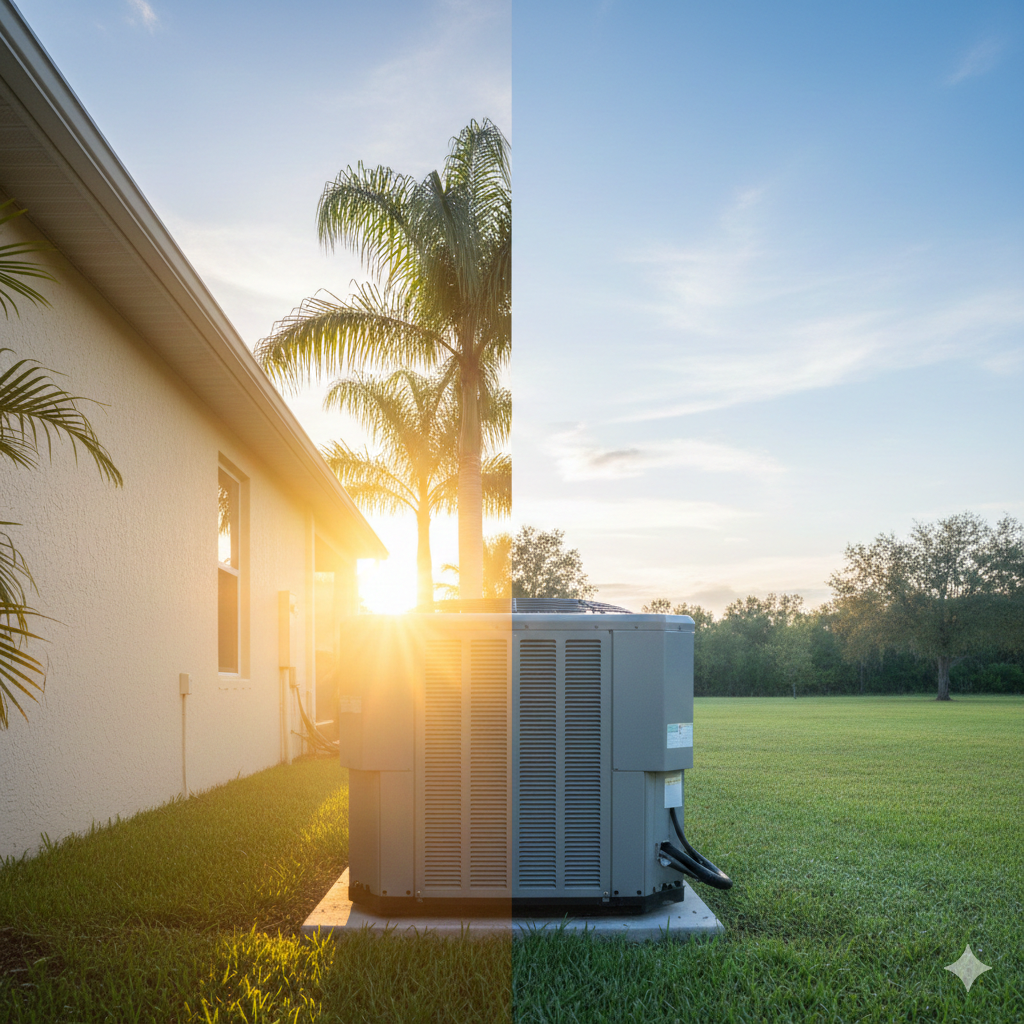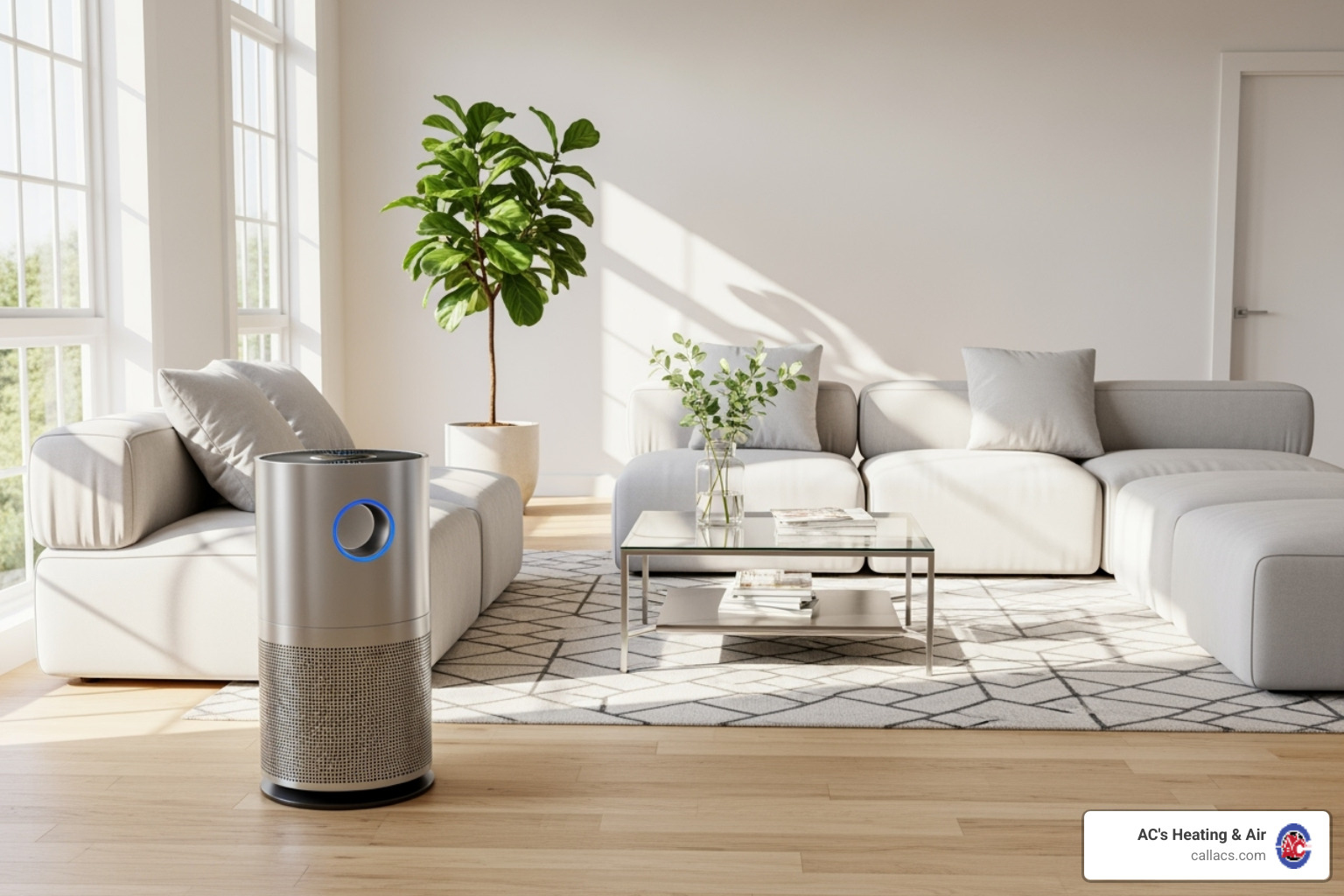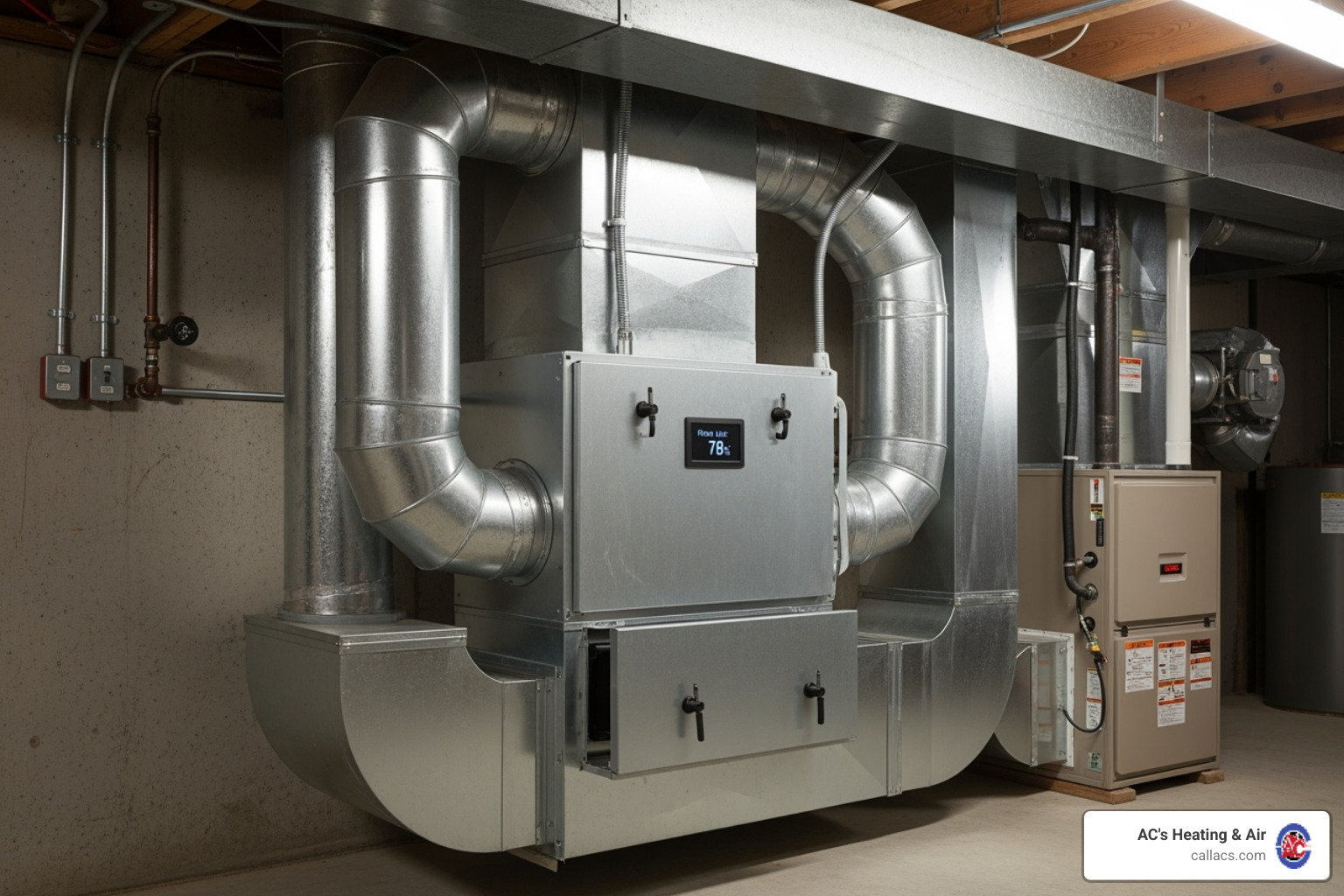AC Troubles: When Your Unit Kicks On and Off Rapidly

What Causes an AC to Turn On and Off Repeatedly?
When your air conditioner kicks on then shuts off rapidly, it can be more than just a minor inconvenience. This common issue, known as short cycling, disrupts your home's comfort, increases energy bills, and can lead to costly repairs if left unattended. Here’s a quick look at the primary culprits behind this problem:
- Thermostat Problems: Inaccurate readings or faulty placement can cause your AC to behave erratically.
- Refrigerant Leak: Low refrigerant levels lead to improper cooling and quick cycling.
- Oversized AC Unit: Units that are too large will cool fast but won’t run long enough to dehumidify effectively.
- Dirty Air Filter: Clogged filters restrict airflow, causing the unit to overheat and shut off.
As Allen Chenault, with over 10+ years of experience in HVAC solutions, I’ve seen how frustrating it can be when your AC kicks on then shuts off. At AC's Heating & Air, we're committed to diagnosing these issues accurately. Let's explore the common causes and how you can keep your AC running smoothly.

Quick look at ac kicks on then shuts off:
Understanding Why Your AC Kicks On Then Shuts Off
When your AC kicks on then shuts off, it's often due to one of four main issues: thermostat problems, a refrigerant leak, an oversized AC unit, or a dirty air filter. Let's break these down.
Thermostat Problems
The thermostat acts as the brain of your air conditioning system. If it's not working correctly, your AC might turn on and off rapidly. Common issues include incorrect settings or a thermostat placed in a poor location, like near a window where sunlight can cause false readings.
If your thermostat is set too low, the AC might shut off quickly because it can't reach the desired coolness. A faulty thermostat can also cause erratic behavior. Ensure that it's functioning properly and consider relocating it for more accurate readings.
Refrigerant Leak
Refrigerant is crucial for cooling. When there's a leak, the refrigerant levels drop, leading to improper cooling and short cycling. This happens because the AC system cannot maintain the necessary pressure, causing the compressor to malfunction.
Signs of a refrigerant leak include ice buildup on the coils and a hissing sound. This issue requires immediate attention from an HVAC specialist to prevent further damage.
Oversized AC Unit
An oversized AC unit might seem like a good idea for quick cooling, but it can cause more harm than good. These units cool the space rapidly and shut off before completing a full cycle, leaving your home damp and uncomfortable. This quick cycling increases energy bills and doesn't effectively remove humidity.
If your AC is oversized, the long-term solution involves installing a unit that better fits your home’s size to ensure efficient and effective cooling.
Dirty Air Filter
A dirty air filter can severely restrict airflow, causing the unit to overheat and shut off. This is one of the simplest issues to fix. Regularly checking and replacing your air filter can prevent short cycling and other potential problems, such as frozen coils.
By understanding these common issues, you can take proactive steps to keep your AC running smoothly. Regular maintenance and professional assessments are key to avoiding these problems and ensuring your home stays comfortable.
Thermostat Issues and Solutions
The thermostat is the control center of your AC system. If it's not set up correctly, your air conditioner might kick on then shut off unexpectedly. Let's explore some common thermostat issues and how to address them.
Thermostat Settings
Sometimes, the simplest solutions are the best. If your thermostat is set too low, your AC might struggle to reach the desired temperature, causing it to turn off quickly. To fix this, try raising the temperature setting slightly. This small adjustment can prevent the AC from cycling on and off too rapidly.
Faulty Thermostat
A faulty thermostat can cause erratic behavior, leading to short cycling. If your thermostat is unresponsive or displays incorrect temperatures, it might need repair or replacement. Check the batteries first if it's a battery-operated unit. If the problem persists, it might be time to call in a professional to diagnose the issue.
Thermostat Location
Where your thermostat is placed matters a lot. If it's located near a heat source, in direct sunlight, or in a drafty area, it might misread the room temperature. This can cause the AC to cycle improperly. Consider relocating the thermostat to a more neutral spot, away from windows or direct heat sources, for more accurate temperature readings.
Understanding these thermostat issues can help you maintain a comfortable home environment. When in doubt, consulting with a professional can ensure your thermostat and AC system are working in harmony.
Next, we'll dig into the causes and fixes of refrigerant leaks, a common culprit behind AC problems.
Refrigerant Leak: Causes and Fixes
A refrigerant leak is a sneaky issue that can cause your air conditioner to kick on then shut off. Let's break down why this happens and what you can do about it.
Low Refrigerant
Refrigerant is the lifeblood of your AC unit. It absorbs heat from the air inside your home and releases it outside. If your AC is low on refrigerant, it can't cool effectively. This can cause the unit to short cycle, turning on and off rapidly.
A common sign of low refrigerant is when your AC isn't cooling as well as it used to. You might also notice ice forming on the evaporator coils. Important: Don't try to fix this yourself. Refrigerant handling requires special expertise and equipment.
Compressor Malfunction
The compressor is crucial for circulating refrigerant through your AC system. If there's a refrigerant leak, the compressor can overheat and malfunction. This can lead to the AC shutting off unexpectedly.
A malfunctioning compressor is a serious issue and can be costly to repair. If your AC is more than ten years old and the compressor fails, it might be more cost-effective to replace the entire unit.
Call an HVAC Specialist
When dealing with refrigerant issues, it's best to call an HVAC specialist. They have the tools and knowledge to safely handle refrigerants, fix leaks, and recharge your system. An HVAC professional can also inspect your compressor and other components for damage.

By addressing refrigerant leaks promptly, you can prevent further damage to your AC system and ensure it runs efficiently. Next, we'll explore the hidden problem of oversized AC units and how they contribute to short cycling.
Oversized AC Unit: The Hidden Problem
An oversized AC unit might sound like a good thing—after all, it means your home cools down faster, right? But here's the catch: quick cooling isn't always better.
Quick Cooling and Humidity Issues
When an AC unit is too large for your space, it cools the air too quickly. This rapid cooling might sound great, but it doesn't allow the system enough time to properly remove humidity from the air. The result? Your home might feel cool, but it can also feel damp and uncomfortable. This is because the AC doesn't run long enough to dehumidify the air, leaving excess moisture behind.
Higher Energy Bills
Another downside to having an oversized AC unit is the impact on your energy bills. Since the unit turns on and off frequently, it uses more energy each time it starts up. This constant cycling not only increases wear and tear on the unit but also leads to higher utility costs. So, while you might think you're saving money with a bigger unit, you're actually paying more in the long run.
The Real Solution
The key to avoiding these issues is to ensure your AC unit is the right size for your home. A properly sized unit will cool your home effectively, remove humidity, and operate efficiently. If you suspect your AC is oversized, it's a good idea to consult with a professional. They can assess your home's cooling needs and recommend the right size unit for optimal comfort and efficiency.
Next, we'll discuss how something as simple as a dirty air filter can also cause your AC to short cycle.
Dirty Air Filter: A Simple Fix
A dirty air filter might seem like a small issue, but it can cause big problems for your AC unit. When the filter is clogged with dust and debris, airflow is restricted. This makes your AC work harder, and it might even lead to short cycling.
Airflow Restriction
When air can't move freely through the filter, your AC struggles to push enough cool air into your home. This restricted airflow can cause the unit to overheat and shut off prematurely. It's like trying to breathe through a straw—frustrating and inefficient.
Frozen Coils
A clogged filter can also lead to frozen coils. When the airflow is blocked, the evaporator coil can get too cold and freeze. This ice buildup further restricts airflow and can cause the AC to shut down. If left unchecked, frozen coils can damage your system and lead to costly repairs.
The Simple Solution
The good news is, fixing a dirty air filter is simple and inexpensive. Here's what you can do:
- Check the Filter Monthly: Look at your air filter every month. If it's dirty, replace it right away.
- Follow Replacement Guidelines: Generally, you should replace your air filter every three months. If you have pets or allergies, you might need to do this more often.
- Keep Extras on Hand: Always have a few spare filters at home. This way, you're ready to swap them out as needed.
By keeping your air filter clean, you can improve airflow, prevent frozen coils, and help your AC run smoothly. It's a small step that makes a big difference.
Next, let's explore how to stop your AC from short cycling altogether.
How to Stop Your AC from Short Cycling
If your AC kicks on then shuts off quickly, it might be short cycling. This can cause wear and tear on your unit and increase energy bills. Here’s how to prevent it:
Proper Unit Size
An oversized AC unit might cool your home too quickly, causing it to shut off before it can properly dehumidify the air. This leads to frequent cycling. To avoid this, ensure your AC unit is the right size for your home. A professional can calculate the correct size using BTUh (British Thermal Units per hour), considering your home's square footage, insulation, and local climate.
Regular Maintenance
Routine maintenance is key to keeping your AC running smoothly and preventing short cycling. Here’s what you should do:
- Bi-annual Tune-ups: Schedule professional tune-ups at least twice a year, in spring and fall. Technicians will inspect and clean components, check refrigerant levels, and ensure the system cycles properly.
- Filter Changes: Change your air filter every 30 to 90 days. A clean filter improves airflow and efficiency, reducing the risk of short cycling.
- Duct Cleaning: Have your ducts cleaned every 3 to 5 years. This prevents dust buildup that can obstruct airflow and cause your AC to cycle improperly.
Professional Assessment
If short cycling persists, it may be time for a professional assessment. An HVAC specialist can:
- Diagnose Issues: Identify and fix problems like refrigerant leaks, faulty thermostats, or electrical issues.
- Evaluate System Size: Ensure your AC unit is the right size and recommend solutions if it’s not.
- Provide Expert Advice: Offer tips on maintenance and improvements to keep your unit running efficiently.
By addressing these factors, you can stop your AC from short cycling and ensure it operates smoothly.
Next, we’ll answer some frequently asked questions about AC short cycling.
Frequently Asked Questions about AC Short Cycling
Why does my AC turn on then off after a few seconds?
When your AC kicks on then shuts off quickly, it could be due to an oversized unit. An oversized AC cools the room too fast, causing it to shut off before completing a full cycle. This quick cooling can prevent proper dehumidification, making your home feel damp and uncomfortable.
Another reason could be electrical problems. Faulty wiring or connections can cause your unit to receive inconsistent power, leading to sudden shutdowns. It's important to have a professional check your system to ensure all connections are secure.
How do I stop my AC from short cycling?
To stop your AC from short cycling, consider these steps:
- Replace Unit: If your unit is too large for your space, replacing it with a properly sized one can solve the problem. A professional can help determine the correct size using BTUh measurements.
- Regular Maintenance: Consistent maintenance can prevent many issues that cause short cycling. Change air filters regularly to ensure good airflow, and schedule bi-annual tune-ups to keep your system in top shape.
- Professional Assessment: If short cycling persists, have an HVAC specialist diagnose the problem. They can check for refrigerant leaks, thermostat issues, and other potential causes.
Why does my AC run for a little then stops?
If your AC runs briefly and then stops, it might be due to clogged filters. Dirty filters restrict airflow, making your unit work harder and shut off prematurely. Regularly changing filters can prevent this issue.
Electrical problems can also cause your AC to stop unexpectedly. Faulty components or wiring issues can disrupt the power supply, leading to short cycling. Having a professional inspect your system can help identify and fix these issues.
By addressing these common problems, you can ensure your AC runs smoothly without frequent interruptions.
Next, we'll conclude with how AC's Heating & Air can help you with these and other air conditioning concerns.
Conclusion
At AC's Heating & Air, we understand how frustrating it can be when your AC kicks on then shuts off. Our team of expert technicians is here to help you resolve these issues swiftly and efficiently. We specialize in diagnosing and repairing all types of air conditioning problems, ensuring your home stays comfortable year-round.
Serving the Central Florida area, including Apopka, Winter Park, Orlando, and Winter Garden, our certified professionals are dedicated to providing top-notch HVAC services. Whether it's addressing thermostat issues, fixing refrigerant leaks, or ensuring your air filter is clean, we have the expertise to handle it all.
Why Choose Us?
- Expert Technicians: Our team is highly trained and experienced in all aspects of AC repair and maintenance.
- Comprehensive Services: From installation to regular maintenance, we offer a full range of HVAC services.
- Central Florida Focus: We pride ourselves on serving our local communities with prompt and reliable service.
Don't let a malfunctioning AC disrupt your comfort. Trust AC's Heating & Air to get your system running smoothly again. For more information on our services or to schedule a repair, contact us today.
Your comfort is our priority, and we're here to ensure your AC unit operates efficiently and effectively.



